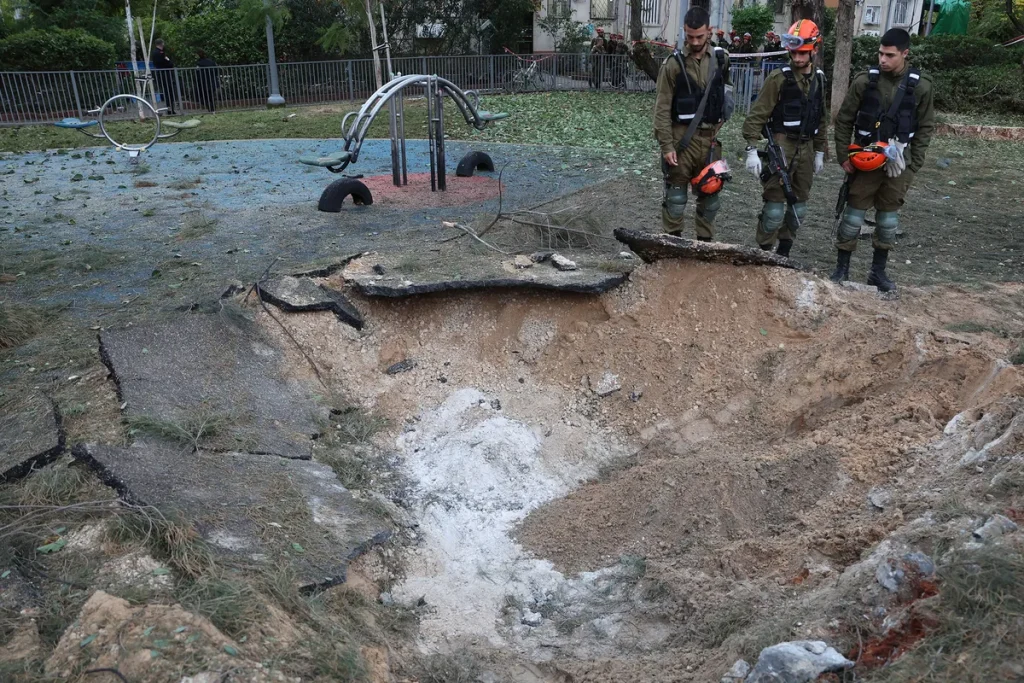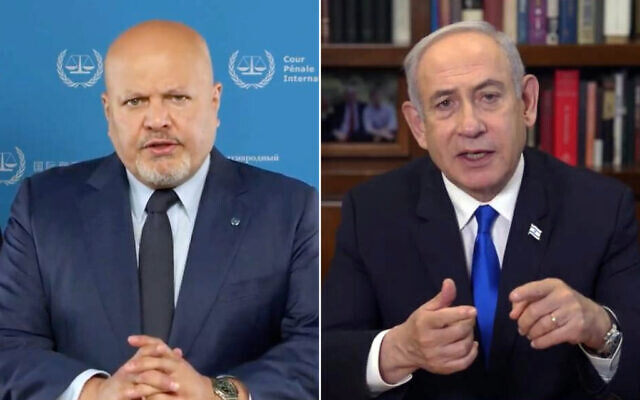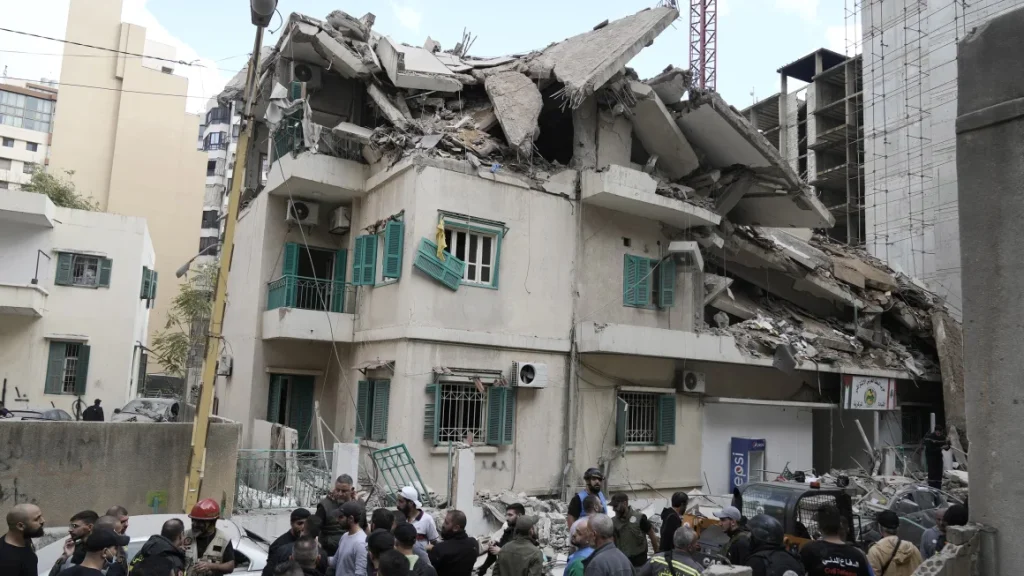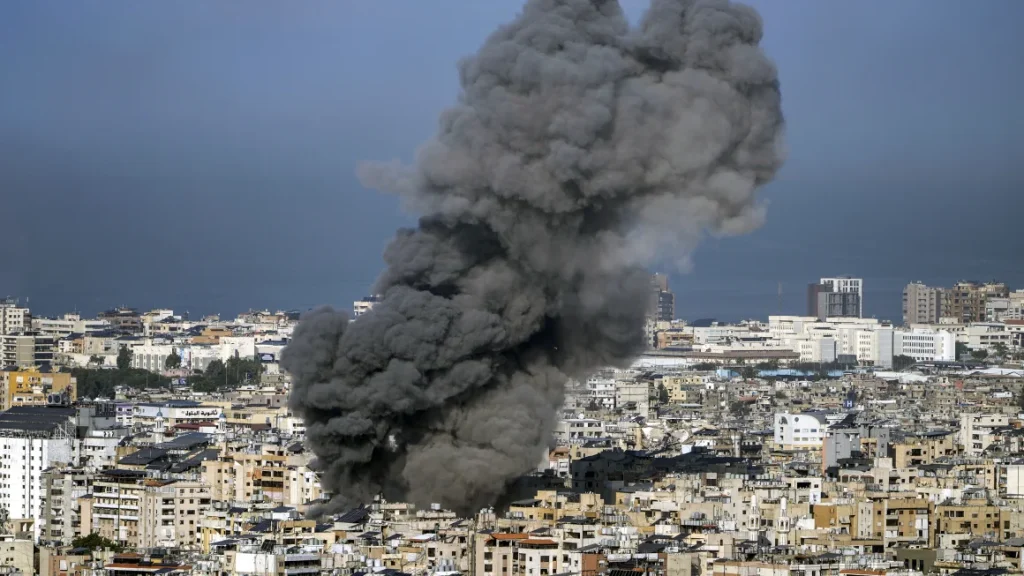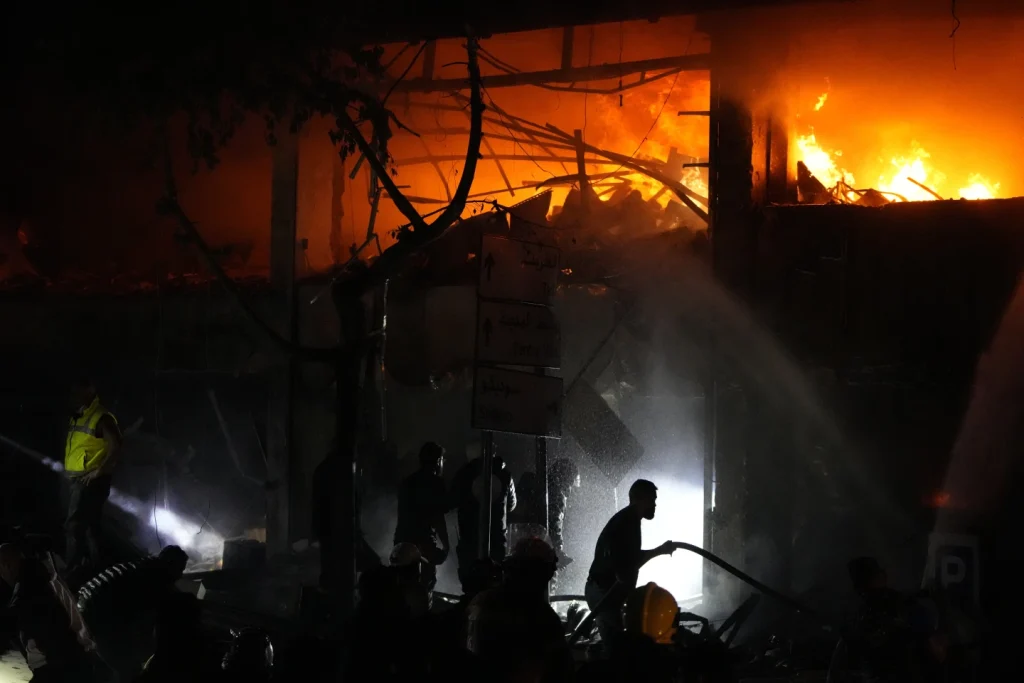Israel bombs Syria and seizes territory as Netanyahu pledges to change ‘the face’ of the Middle East
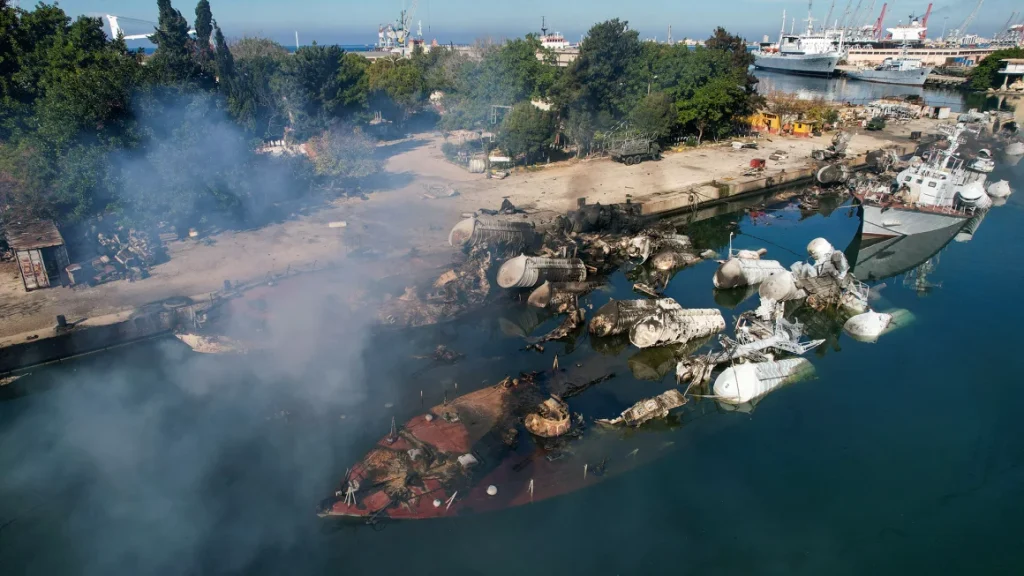
In a dramatic escalation of military actions, Israel has launched airstrikes against Syria and seized key territory, intensifying the already volatile situation in the Middle East. Prime Minister Benjamin Netanyahu, in a bold statement, declared that Israel is committed to changing the “face” of the region, a remark that has raised concerns of further conflict and instability. The bombing campaign and territorial seizures are part of a broader Israeli strategy aimed at asserting its influence in the region, but they also mark a significant shift in the balance of power between Israel, Syria, and other Middle Eastern nations.
The recent airstrikes, which targeted military installations and infrastructure in Syria, come after months of heightened tensions between the two countries. Israel has long viewed the presence of Iranian-backed forces and Hezbollah fighters in Syria as a direct threat to its security. These groups, along with the Syrian government, have formed an alliance that Israel perceives as a growing strategic challenge. Netanyahu’s government has repeatedly vowed to prevent Iran from entrenching itself militarily in Syria, and the airstrikes appear to be part of that broader objective.
In addition to the bombing raids, Israeli forces have moved to seize key territory in the Golan Heights, a region that has been a point of contention between Israel and Syria since the Six-Day War in 1967. While Israel has controlled the Golan Heights for decades, the area is internationally recognized as Syrian territory, and the recent moves have sparked renewed tensions. Netanyahu’s government has argued that the strategic importance of the Golan Heights for Israel’s defense justifies its actions, but critics have warned that these moves could provoke further regional conflict.
Netanyahu’s statement about changing the “face” of the Middle East has been interpreted by many analysts as a clear signal of Israel’s intent to take a more aggressive stance in its foreign policy. The remarks suggest that Israel is prepared to take bold actions to reshape the region’s political and security dynamics, including potentially using military force to secure its interests. Netanyahu has long maintained that Israel must be proactive in defending itself against external threats, and the recent airstrikes and territorial actions seem to align with this strategy.
The prime minister’s position is likely to resonate with many Israelis who view the regional landscape as increasingly hostile, particularly in light of the ongoing tensions with Iran and its allies. However, Netanyahu’s approach has drawn criticism from international leaders who warn that such aggressive actions could escalate into a broader conflict. The airstrikes and territorial seizures have raised alarms in the United Nations and among European powers, who have called for restraint and diplomacy to avoid further destabilizing the region.
Syria, for its part, has condemned the Israeli actions, accusing Israel of violating international law and exacerbating the already dire situation in the region. Syrian officials have vowed to retaliate against Israeli aggression, though it remains unclear what form that retaliation might take. The Syrian government has been embroiled in a brutal civil war for over a decade, with the involvement of multiple foreign powers, including Russia, Iran, and the United States. In this context, Israeli actions in Syria are part of a much larger geopolitical struggle, one in which Israel is seeking to limit the influence of its regional adversaries while maintaining its security.
The airstrikes and territorial gains come amid a period of growing unrest in the Middle East. Iran’s expanding influence in Syria, along with its support for militant groups like Hezbollah, has been a major source of concern for Israel. In recent years, Israel has launched numerous airstrikes on Syrian soil, targeting Iranian military positions and Hezbollah weapons caches. These actions, combined with the recent seizure of territory, signal Israel’s intent to expand its military and strategic presence in the region, potentially altering the balance of power in the Middle East.
Critics of Netanyahu’s policy argue that this approach risks further inflaming tensions in an already volatile region. The military actions could provoke retaliation from Syria and its allies, including Iran, and may draw Israel into a prolonged conflict with unpredictable consequences. Some analysts suggest that Netanyahu’s rhetoric and actions are aimed at consolidating domestic political support, particularly in light of his ongoing legal troubles, and are designed to portray him as a strong leader defending Israel’s interests.
On the other hand, supporters of Netanyahu’s approach argue that Israel has no choice but to take aggressive action in the face of growing threats from Iran and its proxies. They point to Israel’s longstanding policy of self-defense and its need to secure its borders against hostile forces. Netanyahu’s government maintains that these military operations are essential to ensuring Israel’s security and protecting its citizens from external threats.
As the situation continues to unfold, the international community remains deeply concerned about the potential for further escalation. The United Nations has called for an immediate de-escalation of tensions, urging all parties involved to engage in dialogue rather than resorting to violence. However, with Netanyahu’s pledge to transform the Middle East and his government’s continued military actions, the prospects for peace and stability in the region appear increasingly uncertain.
In conclusion, Israel’s bombing campaign in Syria and its territorial seizures in the Golan Heights represents a significant shift in the Middle East’s geopolitical landscape. Netanyahu’s pledge to change the face of the region has heightened concerns about further conflict, as Israel takes more aggressive steps to secure its interests. The coming weeks and months will be critical in determining whether these actions lead to greater instability or whether a path toward diplomacy and peace can still be pursued.


